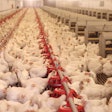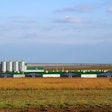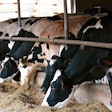The International Feed Industry Federation, together with the American Feed Industry Association and the European Compound Feed Manufacturers’ Federation, has joined a new United Nations Food and Agriculture Organization-led partnership to improve how the environmental impacts of the livestock industry are measured and assessed.
“This is a vital and necessary first step in improving the sustainability of this important food production sector,” said Professor Frank Mitloehner from the University of California, Davis, representing the feed industry, who has been elected as the chairman of this partnership for the first year. Mitloehner said that the Food and Agriculture Organization should offer to facilitate dialogue among the private sector, governments and other organizations as an important step to bring together all available expertise on the latest advances in research.
“How to feed the world sustainably in 2050 is one of the central challenges we face, and it is vital that we continue to improve the efficiency of the use of natural resources and to better our performance in terms of sustainability across the whole feed and food chain,” said Mario Sergio Cutait, International Feed Industry Federation chairman. “The FAO-led partnership to improve how the environmental impacts of the livestock industry are measured and assessed is an important step to tackle this challenge, and only by working together with all partners in the feed and food chain can we meet the demands of 60 percent more food by 2050 and do so sustainably.”
The feed industry will work with the Food and Agriculture Organization and other governmental, private sector and nongovernmental partners on a number of fronts to strengthen the science of environmental benchmarking of livestock supply chains. Activities planned for the initial three-year phase of the project include:
- Establishing science-based methods and guidelines on how to quantify livestock’s carbon footprint, covering various types of livestock operations and rearing systems.
- Creating a database of greenhouse gas emission factors generated for the production of different kinds of animal feed – feed production and use offer significant opportunities for reducing livestock emissions.
- Developing a methodology for measuring other important environmental pressures, such as water consumption and nutrient losses.
- Initiating a communications campaign to promote use of the partnership’s methodologies and findings.













